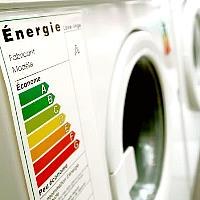(LUXEMBOURG) – The European Court of Auditors said Wednesday it is assessing the contribution EU measures for ecodesign and the energy labelling of products make to EU energy efficiency and environmental objectives.
As part of its fight against climate change, the EU is committed to improving its energy efficiency by 20% by 2020 and by 32.5% by 2030. To help achieve these goals, the European Commission undertook measures which focus on greener product design and consumer information. About EUR 0.8 billion have been allocated for the 2007-2020 period.
The auditors today published an Audit Preview on EU policy for ecodesign and energy labelling. Audit Previews provide information on an ongoing audit task. These are designed to be a source of information for those interested in the policy or programmes being audited.
Ecodesign and energy labelling should complement each other, sayt eh auditors. On the one hand, ecodesign requirements promote innovation and ‘push’ the market away from the worst-performing products. On the other hand, energy labels encourage consumers to make better-informed decisions, thus ‘pulling’ the market towards greater energy efficiency. Market surveillance is therefore seen as essential to ensure products comply with the requirements.
The current ecodesign requirements cover 30 product groups ranging from household lamps to industrial solid-fuel boilers. The rules on labelling also apply, at least partly, to 13 of these product groups. The audit will examine how well EU action has helped towards achieving energy efficiency and environmental objectives.
- the Commission’s management of ecodesign and energy labelling measures
- the impact of EU action on Member States’ market surveillance activities.



